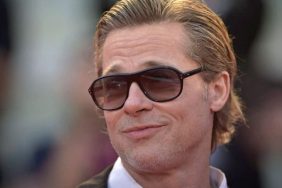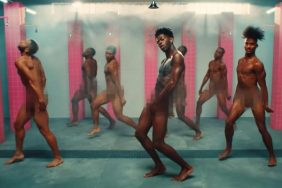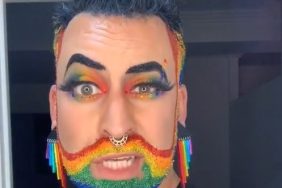Music video director Warren Fu has some pretty impressive names on his resume. From the likes of electronic juggernauts Daft Punk to seductive R&B crooner The Weeknd, Fu has worked with some of the biggest names in music across his career. Yet, music video wasn’t his first choice of medium when it came to expressing himself; the young film maker starting out as an art director and conceptual artist at Lucasfilm.
Getting his first job with the studio responsible for Star Wars seems to have been a prophetic sign of success to come for Fu. His time there would not only equip him with the practical skills needed to be a director, but also inspire him to view art and creativity from a new, more holistic perspective.
Going on to a very successful career as a music video director, Wu has been selected as an international guest speaker at this year’s Clipped Music Video Festival held as part of Vivid Ideas. Australia’s premiere music video festival, Clipped is dedicated to championing the best music video directors from Australia and New Zealand. Wu joins an impressive list of local heavyweights including Keep Sydney Open leader and Rage programmer Tyson Koh, the Country Music Channel’s own Tim Daley and others, who’ll be discussing the importance of music video in the industry today and other topics including how to break through as a young director.
Speaking to Wu ahead of his trip to Australia, he explains how he got to where he is now, where we might see him in the future and of course his love of music video as an art form.
Crave Australia: So you started off as a visual artist before going on to direct. Can you tell us a bit about that and how it might have influenced you as a director?
Warren Fu: I started off as an art director and conceptual artist at Lucasfilm, and what I learned there helped me a lot when it came to directing. I actually did a lot of work with the model shop there, art directing a lot of the stage shoots for miniatures and the miniature sets. So I got a lot of experience with a lot of different things that go into film making there. I learned a lot about story boarding which is a big part of film making, like finding camera angles and composing shots, and then actually being on sets and working with builders and cinematographers and lighting and just seeing how the whole shooting process worked on a miniature sets, that all carried over into working on full size sets. Directing is such an all-encompassing art form, you’ll never be a complete master, there is something new you learn every time. So even though I’ve been doing this now for eight years, I’m still learning something new on every shoot whether big or small.
CA: Directing encompasses so many art forms within it, from music and painting to cinematography and CGI. It is one of the few mediums where you can really take from multiple other forms and synthesise those sensibilities or ideas into your work.
WF: Exactly, it becomes less about perfecting any one practice and instead it becomes about refining your sense of taste and maintaining a sense of tone. Then there is a certain amount of managerial qualities you have to have too. Because it is not a singular art form like painting, which I grew up with and where I could just paint on my own, with directing it’s like painting with an entire group of people. It’s like being the conductor of an orchestra in a way and you have to have good people skills and know how to maintain relationships with people to get the best out of them.
CA: Inspiring them to do their best work.
WF: Yeah, and I am always fascinated by how other directors work. I like to learn from the positive stuff and learn from the mistakes too. It’s weird because DPs and actors and everyone else on the crew get to go and be on other director’s sets, where as a director who never, or rarely, get to see other directors’ work. So I like to take some time off and go and visit my friends who are directors on set and see how they work and try and learn from them.
CA: It’s always interesting to get to have a look inside someone’s process. Is that something you’re excited to do as part of Clipped, share your process with other film makers?
WF: Yeah I think this is sort of new-ish for me. I’ve done little things here and there but this is definitely the most I’ll have ever talked about myself. I’m usually just talking through my work and just putting stuff out aside from the occasional tweet or whatever. I guess it’s been a sort of whirlwind of non-stop work for the last few years, and while I was debating whether or not I should do this at first, I realised it’s a nice opportunity for me to force myself to take a little bit of a breather from working. You know, I talk to other directors about this all the time, like how no one ever takes a vacation because something always comes up, so the fact that I’ve booked the ticket and have to speak at this event it’s forced me to take a break from work and travel to beautiful Australia and talk to people about this art form that I love and encouraging any young and emerging artists out there to get into this field if they haven’t already.
CA: Was there anything in particular that attracted you to music videos after leaving Lucasfilm?
WF: I was doing the concept art thing for a few years and I was never the best concept artist there, but more than that I felt like I was only scratching one itch while I was there. I’d always been into music you know, and I’d been into graffiti art and I was into hip hop and sampling and that whole culture and the culture of break dancing and just movement that went along with that, and while I was at Lucasfilm I was starting to take on a different perspective on creativity in general.
You know like with Spinal Tap, Christopher Guest and his crew of comedians, they are so funny but they all play instruments too and pretty well, and then you watch A Mighty Wind and there they are again playing a different style of music and again pretty well and I started to see there was a lot of overlap between the mentalities of artists working in different art forms. So I started to take a step back and see those correlations more clearly like how a music producer working in ProTools edits sound in much the same way an editor working on a film edits vision. Or how a certain keyboard sound or tone will evoke a certain feeling or emotion in you the same way a certain font will in graphic design. So I was kind of moving towards a more cross platform sense of what an artist was and working as a concept artist I was feeling I wanted to be more of a conductor and combine all the things that I love into one form, and directing music videos was the one way I could combine my love of film and music.
I actually hated playing piano as a kid, but at the same time I loved music, and I am really happy that I took piano lessons as a kid because just knowing a little bit about music theory and how music works it let me appreciate artists that I would come to love later in life. Like hearing some classical music influence in classic rock, like hearing some Bach in a Led Zeppelin guitar solo, that stuff was fascinating to me.
Also just before I left Lucasfilm I was really into Saturday Night Live and improv comedy, and I was really into animation and dancing and choreography and the way people move and I saw that music video was the one way I could bring all these things together, and so far I’ve been able to do at least a little bit of them all. You know I’ve done an animated video with The Killers, I did a kind of crazy absurd comedy with The Darkness, I got to do a choreography video with Haim, I got to make these mini fables for Daft Punk and The Weeknd, so it’s been a wild ride for me just scratching all these itches that I have, and the great thing is that I can just spend a little bit of time on each. It’s one of the greatest feelings I get from this, just getting an idea from a song and then a couple of weeks later there you are looking at your idea happen and you’re filming it. It’s the craziest thing.
CA: Do you think you will stick to directing music video or will we be seeing you working on your own feature in the coming years?
WF: A feature is something that I definitely want to do, but I hope that I always work on music videos. It might be a case of me just working on fewer video and it becomes more of a selective thing that I do on special occasions, but there will always be that side of me that has a love for it. Also the nice thing is that over my career I’ve been able to build good relationships with artists and I have friendships with them so that even if I am out of the game for a while they can call me up and we can work on something together if we think it’s fun and has artistic value to it. But I’ll always be passionate about music video, and even if I do them less, I’ll always appreciate the creativity that goes into them and I’m just honoured to be a part of the whole industry of music video.
CA: So you’re not going to pull a David Fincher and run off to Hollywood and never turn back?
WF: No I love features, but I think I will always love the beauty of images and music without dialogue. I remember when I saw Fantasia as a kid that totally had an effect on me. Just seeing abstract shapes exploding in the air to music… it was really just fascinating for me as a kid. And that was the thing, every time I would hear a song for the first time I would see pictures in my head, so I just think it’s in my DNA.
Warren Fu will speak as part of Clipped Music Video Festival on Saturday, 3rd June at Sunstudios as part of Vivid Ideas 2017.










